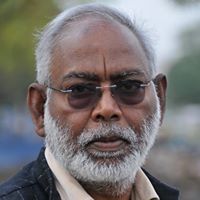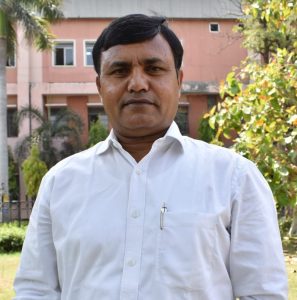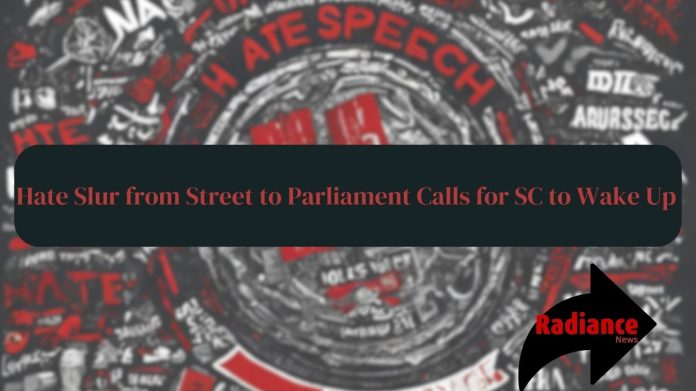
– Mohd Naushad Khan
Hatred against minorities, especially Muslims in India has travelled from streets and lanes and now reached the Parliament despite strong guidelines by the Supreme Court against hate speeches and violence. The guidelines of the Supreme Court are violated day in and day out and people of conscience are asking when the apex court will wake up.
Noble conscience believes that SC should intervene before it is too late. BJP MP Ramesh Bidhuri’s abusive language, which was more of Islamophobic nature, against BSP MP Danish Ali during the Special Session of the Parliament, is a new low for our parliamentary democracy.
Two seniormost BJP leaders enjoying that hate slur with smile on their face reveals the worst phase of social and moral decadence. It appears that the manifestation of hate has firmly entrenched in the mindset of some people, endangering not only the Idea of India but also its unity in diversity.
On 15 March, 2022, a resolution proclaiming 15 March as the International Day to Combat Islamophobia was unanimously adopted by the UN General Assembly. The text called for expanded international efforts to create a global dialogue that will encourage tolerance and peace centred on respect for human rights and the diversity of religions and beliefs.
Back home in India, on the need of law against Islamophobia after recent hate slur in the Parliament, Dr. John Dayal, a noted social and human rights activist, Dr. Narender Nagarwal, who teaches Law at the University of Delhi, and Dr. Prem Chand, Assistant Professor, Department of Political Science, ARSD College, University of Delhi, while talking to Radiance, shared their perspectives.
 John Dayal, a noted social and human rights activist
John Dayal, a noted social and human rights activist
India does not need more laws impacting speech and expression, even if the noble objective is to defuse Islamophobia and to curb the right-wing religious nationalists’ forces now polarising India. What India-Bharat needs is a comprehensive law which replaces the British era sections in the Indian Penal Code – and which could be called “anti-blasphemy laws” – with a comprehensive legislation to “de-fang” hate speech leading to targeted violence against minority groups such as Muslims, Christians and Dalits.
Such a code was evolved by the United Progressive Alliance by a group of jurists, community leaders and civil society activists at the instance of Mrs Sona Gandhi, the UPA chairperson. It was shot down by forces inside the UPA government who became scared that it would range the Hindu community against the UPA because the BJP saw it as focused on Hindutva groups such as the Sangh Parivar, the chief source of hate against minorities then, as now. Anti- Blasphemy laws prohibit the expression of views or opinions that are offensive or insulting to a particular religion or its deities.
In India, the two main Indian blasphemy laws are Sections 295 and 153 of the Indian Penal Code (IPC). Section 295 prohibits the destruction, damage, or defilement of any place of worship or any object held sacred by any class of persons. Section 153 prohibits the promotion of enmity between different groups based on religion, race, place of birth, residence, language, etc. Section 295A was added to the IPC in 1927 to specifically address the issue of blasphemy. It prohibits the deliberate and malicious acts, intended to outrage religious feelings or any class by insulting its religion or religious beliefs. Section 295A has been criticised for being vague and over-broad, and for being used to suppress freedom of speech and expression.
There is no doubt that Islamophobia is one of the biggest social threats facing India and is used both as a political weapon to aggravate the social and religious polarisation which suits the ruling party, and to socially and economically eliminate the 20 crore or so Muslim community in India. Christians are collateral damage, but no less victims of this targeted hate and violence. There are crucial differences between the Islamophobe in Western Europe, or China, Thailand and Philippines, and the anti-Muslim crusade in India which brought Mr Modi to power in 2014. These differences need to be studied in detail and with care. Islamophobia needs to be challenged and defeated politically and socially. The law route will not succeed.
 Dr Narender Nagarwal, who teaches Law at the University of Delhi
Dr Narender Nagarwal, who teaches Law at the University of Delhi
No civilized society endorses hate speech directed towards any religion or community under the guise of free speech. While freedom of speech and expression is considered a cornerstone in a democratic country, hateful propaganda targeted against any particular community or group cannot be allowed. Hate speech refers to any expression that is likely to cause distress or offence to individuals based on their association with a particular group or incites animosity towards them.
There are no clear-cut parameters for what constitutes hate speech, but any content that may create animosity against a community or group by ridiculing their religion, language, food habits, culture, or religious beliefs is considered hate speech and must be dealt with sternly. In a multicultural society like India, discrimination based on caste and religion is one of the parameters on which extremity of speech is measured.
The Constitution of India acknowledges that civil and political freedoms cannot be absolute or uncontrolled, and makes provisions in clauses (2) to (6) of Article 19, authorising the State to restrict the exercise of the freedom guaranteed under that Article within the limits specified in those clauses. Thus, clause (2) of Article 19, as subsequently amended by the Constitution (First Amendment) Act, 1951 and the Constitution (Sixteenth Amendment) Act, 1963, enabled the legislature to impose reasonable restrictions on the exercise of the right to freedom of speech and expression in the interest of society.
If the State is continuously ignoring the frequent hate speech from the fringe and extremist organisations, it clearly denotes that rioters alone should not be blamed for the communal violence rather instigators of rioting alike are to blame for the orgy of communal violence. Here, the prime instigator is the State itself and its agencies, their primary job is to maintain law and order and ensure inter-religious peace rather the State has maintained a suspicious silence over the problem of the rising graph of hate speech targeted against minorities which is testimony that State and its agencies are in collusion with perpetrators of hate speech.
With regard to whether or not we require specific laws to address hate speech and Islamophobic violence, I believe that the existing statute books provide ample provisions. However, the issue lies in the enforcement agencies’ failure to implement these laws. In most cases, the offenders are charged with minor offences by the police and are easily granted bail or the police are hesitant to take a firm stance during the trials. This preferential treatment given to the offenders indicates that they are being supported by the State.
Throughout my academic life, I have never witnessed a successful prosecution of a hate speech offender. The real problem is not about special law but training and sensitization of police officials and the complete dissociation of police from the clutches of politicians. The police system is competent enough to curb hate speech within 24 hours but hate speeches and Islamophobic violence continue because a particular political class wants these hate speeches aiming to polarise the society and put minorities in a bad light, it is their political strategy.
 Dr. Prem Chand, Assistant Professor, Department of Political Science, ARSD College, University of Delhi
Dr. Prem Chand, Assistant Professor, Department of Political Science, ARSD College, University of Delhi
Hate speeches, dealt under IPC under Sections 153A, 153B, 295A, 298, 505(1) and 505(2) that declares that word, spoken or written, that promotes disharmony, hatred, or insults on basis of religion, ethnicity, culture, language, region, caste, community, race etc., are punishable under law. The Constitution of India, through reasonable restrictions specified in Article 19(2) limits Freedom of Speech and Expression. Laws like the Anti-Blasphemy Law, the Criminal Defamation Law and the Sedition Law also curb this freedom.
Hate Speech is that the existing penal provisions regarding hate speech are legacies from not only a colonial past but they have constructed hate speech within the contours of acts that are ‘detrimental to harmony’ between two groups of society and therefore with a potential to cause harm to public order. For example, one can be charged under IPC for promoting enmity between two religions under Section 153 A and not for vile insults that de-value and de-humanise certain communities. It is the product or systemic phenomenon and a tool that is normally used by the powerful to further alienate the powerless, in a polity.




